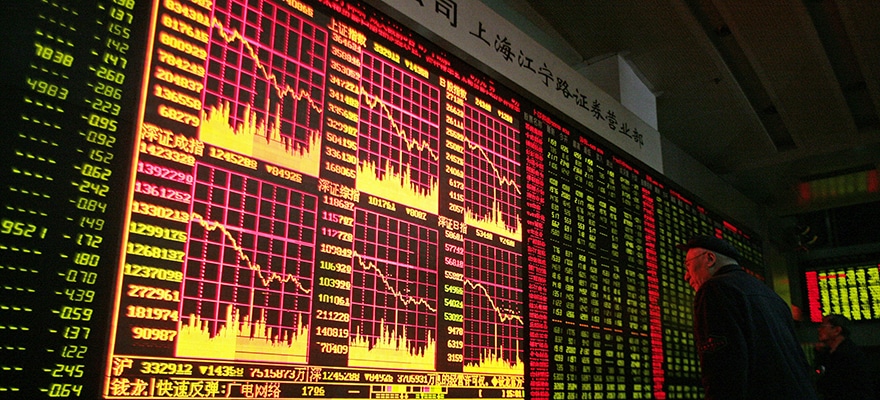While most of the attention of punters and media is focused on Greece, a stock market event in China has been left on the back burner. The value of the Shanghai Composite index dropped as much as 7.6 percent in early Asian trading.
After the close the market has officially entered into bear market territory having now fallen by about 22 percent from the peak registered merely a couple of weeks ago. After a tumultuous session Friday evening, the People’s Bank of China cut rates and reserve requirement rations over the weekend in a effort to alleviate liquidity concerns.
With margin debt for stock trading hitting an all-time high this year, Chinese authorities have been worried about the extent to which the market rallied. The main beneficiaries were technology stocks whose valuations catapulted into the stratosphere.
The latest news about the Chinese turmoil reveal that the China Securities Regulatory Commission has been discussing the prospect of halting IPOs due to the extreme market conditions.
Despite the muted reaction by the market, after a very sharp decline last Friday, the People’s Bank of China action to reduce rates has been extraordinary in itself. The one year lending and deposit rates have been brought down to 4.85 percent and 2 percent respectively, while the reserve requirements ratio was cut to 21 percent.
With the stock market beginning from a flow of easy money and with margin debt sitting close to all-time highs, the outlook for the Chinese stock market is deteriorating.
The Margin Debt “Blessing”
Chinese authorities have cleared the way for stock market investors to borrow money on margin, while the central bank has cut interest rates three times since then. Between January and May this year, about 33 million brokerage accounts were opened in China. While the figure pales in comparison to the population, the majority of new account holders have no experience in investing.
A report by Macquarie Research unveiled that margin debt has soared over 120 percent since the beginning of the year to about $370 billion, as of the middle of June.
When we look at this figure in comparison, we will establish that it represents 8.5 percent of all shares that are tradable. The number seems much less important than the U.S. stock market, where the figure stands at below three percent.
With the pending Greek crisis final outcome we might be entering into the “perfect storm,” phrase coined by Dr Doom, Nouriel Roublini.
The notoriously famous economist for calling the financial crisis in 2007, recently shared his views in a Project Syndicate opinion piece. He argues that low interest rates have finally led to increased economic liquidity, however the same measures could have led to “severe market illiquidity.
Describing the development as a time bomb, Mr. Roubini says that volatile flash crashes, bond yields and stock prices are here to stay, or better said, intensify.
He explains that the longer central banks pump in liquidity to be able to reduce short-term volatility, the more they are feeding a number of bubbles across financial markets.





Be First to Comment